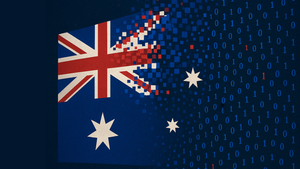The Australian government has ruled out introducing a new copyright exception for ‘text and data mining’ that would benefit AI companies using copyright protected works to train generative AI models. Such an exception - similar to that still being considered in the UK - was proposed in a report by Australia's Productivity Commission back in August.
However, the country’s Attorney-General Michelle Rowland ruled out any new copyright exception for AI companies this weekend. In an interview with ABC’s ‘AM’ this morning she said that - while there is definitely work to be done reviewing Australian copyright law in the context of AI - “we are making it very clear that we will not be entertaining a text and data mining exception”.
That commitment is welcome news for the music industry - and the wider creative industries - which are looking for similar commitments from governments and lawmakers across the world, including in the UK.
British ministers remain reluctant to disappoint either the burgeoning AI sector or the all important creative industries, instead pushing ahead with what seems like an endless consultation with relevant stakeholders. The news from Australia will put more pressure on the UK government on this issue.
Though it’s possible ministers hope that - mainly because of legal developments in the US - an increasing number of big AI companies will start to do licensing deals with copyright owners in the coming months. And will then potentially change their position on the need for a copyright exception, which at that point would only favour their rivals.
Which might mean the UK government can continue to present itself as a champion of AI - and a friend of the US and its tech giants - while not having to piss off British creators and copyright owners.
The music industry is adamant that any AI companies that make use of existing music when training their generative AI models must get permission from the relevant creators and copyright owners. Many tech companies argue that AI training is - or should be - covered by copyright exceptions or the US principle of fair use, meaning they don't need to get permission.
The European Union does provide a text and data mining exception that AI companies reckon they can rely on, although rightsholders can opt-out of that exception, meaning that for their content licences are still required. The UK government proposed introducing something similar last year.
Meanwhile, a plethora of lawsuits have been filed against AI companies that have used existing content, including music, without permission. In the US, where the majority of the lawsuits have been filed, there remains much legal uncertainty.
While the AI companies could still win the argument in the long-term, they might prefer to do licensing deals in the short-term, to avoid the risk of having to pay billions or even trillions of dollars in damages if they lose any of the big copyright lawsuits in the future.
As a result key players in AI may move from insisting they don’t need licences to negotiating licensing deals, with the consequence that they then flip sides and become allied with copyright owners against any rival tech companies that make use of copyright protected content without permission.
In other words, we may see a future where AI companies that previously actively advocated for - or at least expressed favourable noise about - a new copyright exception start to come out against any exceptions being introduced, in order to enforce their position in the market.
As for the ways in which Australian copyright law needs to be reviewed in the context of AI, Rowland honed in on the need for transparency when speaking to ABC earlier today. Which is to say, AI companies should declare what content they have copied in their training processes, which is another demand of the music industry.
“If we don’t have attribution and transparency regulations for these corporations”, Rowland said, “then how can you know where and how your content's being used anyway and how can you get fairly paid for it?”
Unsurprisingly, the Australian Recording Industry Association is among those to welcome Rowland’s commitments. Its CEO Annabelle Herd told ABC, “We know that around the world, major companies have been using copyrighted works without permission, without payment, to train massive AI systems - and they're retroactively seeking permission to do that”.
“There is no evidence to show that it would be difficult for these companies to approach rightsholders and license that work”, she added, meaning the tech sector lobbying for a new copyright exception was “a bit of a try-on”.

